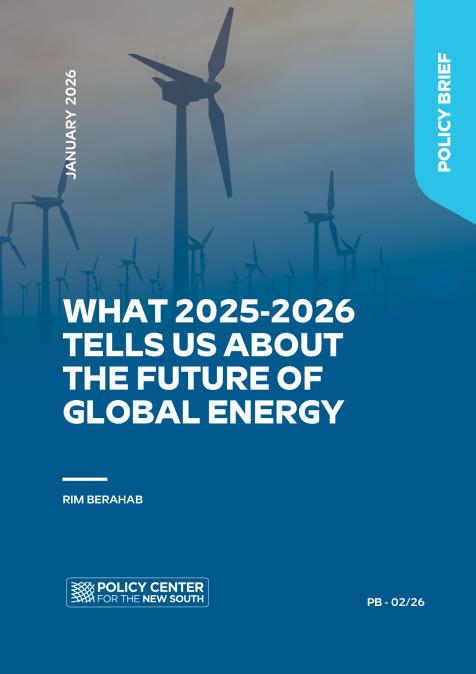Macroeconomic Policies in times of COVID-19 in Emerging Markets: Early Lessons
December 9, 2020
Moderator: Andrés Schipani, East and Central Africa Correspondent, Financial Times Speakers: - Otaviano Canuto, Senior Fellow, Policy Center for the New South - Karim El Aynaoui, President, Policy Center for the New South, Dean, Faculty of Governance, Economics and Social Sciences, Mohammed VI Polytechnic University - Célestin Monga, Professor of Public Policy, Harvard Kennedy School
Speakers

Karim El Aynaoui
Executive President
Karim El Aynaoui is Executive President of the Policy Center for the New South. He is also Executive Vice-President of Mohammed VI Polytechnic University and Dean of its Humanities, Economics and Social Sciences Cluster. Karim El Aynaoui is an economist. From 2005 to 2012, he worked at the Central Bank of Morocco where he held the position of Director of Economics, Statistics, and International Relations. At the Central Bank of Morocco, he was in charge of the Research Department and equally a member of the Governor’s Cabinet. Previously, he worked for eight years at the World Bank as an Economist for its regional units of the Middle East and North Africa and Africa. Karim El Aynaoui has published books and journal articles on macroeconomic issues in developing ...


Otaviano Canuto
Senior Fellow
Senior Fellow at the Policy Center for the New South, Affiliate Professor at Mohammed VI Polytechnic University and Non-Resident Senior Fellow at Brookings Institute. Former Vice President and Executive Director at the World Bank, Executive Director at the International Monetary Fund (IMF) and Vice President at the Inter-American Development Bank.
...












